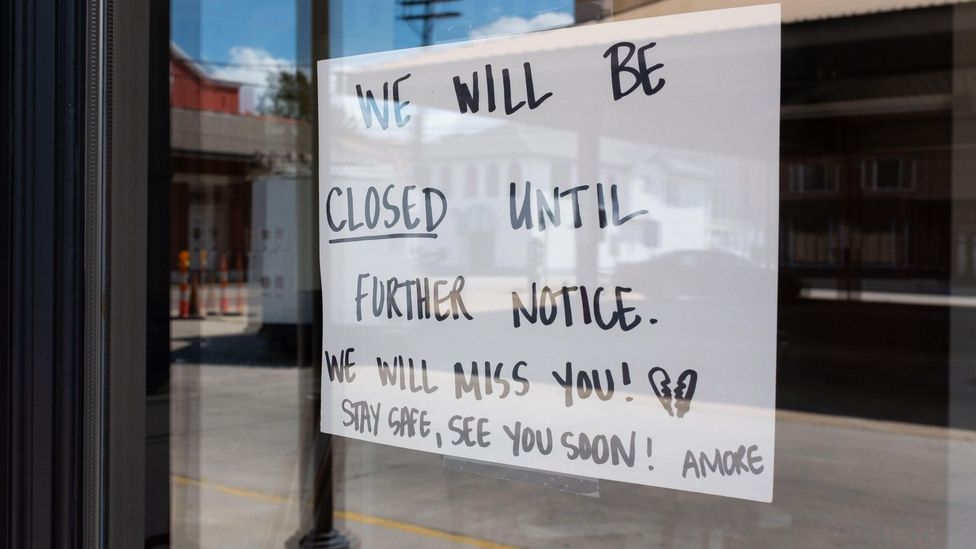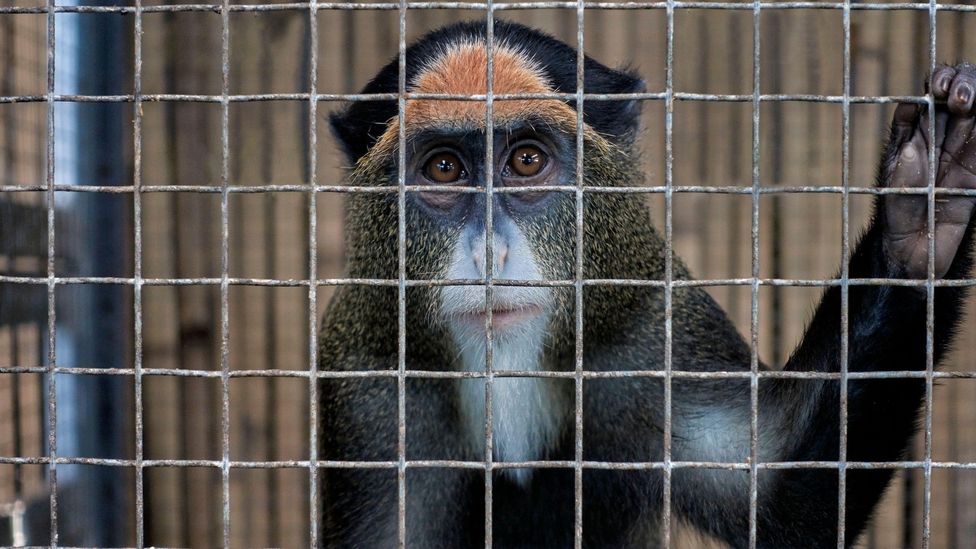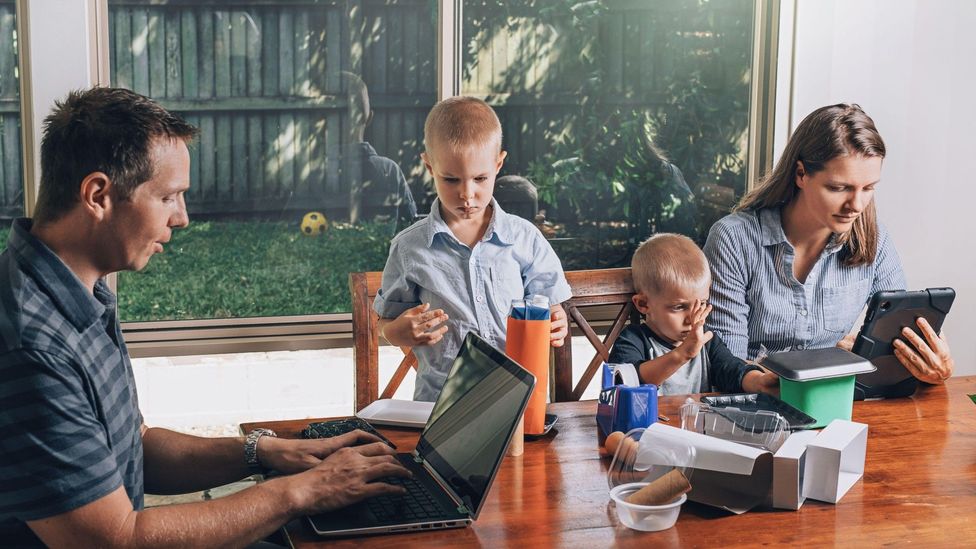If a century of psychological science has taught us anything about the fundamental needs of the human mind, it is that we yearn for the feeling of control.
Whatever their background, people who perceive that they have power to determine their own fate – from tiny short-term decisions to important life events – tend to be happier, healthier and more productive. Even the most challenging circumstances can be more bearable if we feel that we have some say in the outcome, while small stresses may become exaggerated if we feel that we are completely helpless to change the situation. “Powerlessness is inherently threatening, and it prompts a strong desire to reduce or eliminate that feeling,” says Eric Anicich, an assistant professor of management and organisation at the University of Southern California Marshall School of Business.
This research could not be more relevant in 2020. Alongside the fear of the virus itself, the pandemic has limited our lives personally and professionally in countless ways, with the ongoing economic uncertainty and restrictions threatening to last well into 2021.
There is no doubt that this loss of personal control will have affected our wellbeing, but Anicich’s recent research suggests that many people have coped much better than they might have initially expected with the new challenges. And for those of us who are still struggling, psychologists like Anicich have some advice for the best ways to restore our sense of personal power and control – both now and in the future.

We like being in control - but our sense of self-determination has been thrown into disarray by the pandemic (Credit: Alamy)
Lost freedom
A rudimentary desire for self-determination may have emerged deep in our evolutionary history. While we may not often think of other creatures exercising their free will, many species suffer when their autonomy is taken away from them. For almost a century, scientists have known that simply restricting an animal’s movements will result in a marked stress response. Although there is no threat of physical injury, the inability to move and act freely leads to the release of hormones like adrenaline and cortisol, a quickened heartbeat and the formation of gastric ulcers. And even small freedoms can have a big impact: giant pandas given a ‘bedroom’ in their enclosure, which allows them to choose between two distinct environments, fare better than those with only one space to roam.
While there are clear ethical issues with deliberately placing humans in severely stressful situations, various cleverly designed studies show that the perception of control over our circumstances can profoundly affect the ways that we respond to challenges. The effects are particularly problematic if we feel that we have lost power that we once had. In 2008, for instance, Belgian and British researchers asked participants to play a card game, during which they could receive a small electric shock. In the first third of the game, the participants were able to learn which responses in the game would bring the shock, providing them with some level of control over the pain. At a certain point, however, these rules vanished, and the shocks arrived regularly without any link to the participants’ behaviour. Although the electricity was administered at exactly the same intensity, the participants’ loss of control over their pain made the experience considerably more unpleasant, resulting in greater fear and distress, and a reduced ability to concentrate.
The same patterns have been observed in many other scenarios, including longer-term studies examining people’s mental and physical health over months and years. Importantly, our perception of control is relatively subjective, and scientists have found that this can influence our wellbeing independently of the many other factors that determine the actual amount of control we have over our lives. People who report feeling little power in their lives tend to show a greater risk of illnesses and death, even when you control for factors like their socioeconomic status.
As the animal-research demonstrated, these long-term health effects may partly arise from the enhanced physiological response to stress, but it could also arise from behavioural differences too. When people feel helpless, they are less likely to take care of their own health through exercise and diet. If you doubt your ability to take charge of a situation, then any effort will seem futile, and the perception can become self-fulfilling.
These differences in mindset may explain the way different people respond to events like unemployment. Any job loss is hard to handle, but people with lower “perceived control” before the redundancy find it harder to find a new job later on. (The two factors could, of course, be self-reinforcing – since, in this situation, your sense of personal empowerment may also depend on your chances of successful job hunting.)

Animals exhibit a stress response when they are not able to move around freely, research shows (Credit: Alamy)
Heightened resilience
These previous studies had all tended to look at individual crises, rather than global events. But thanks to a chance coincidence, Anicich has already captured a snapshot of our feelings during the early days of the pandemic, which immediately threw billions of lives into disarray and severely limited many of the behaviours that we had taken for granted.
His team was already setting up an online psychological survey to measure Americans’ general experiences of work when the crisis became apparent in March, allowing them to record people’s immediate reactions to the Covid-19 upheaval. “We had the very fortunate opportunity to collect data at a time when things were really changing quickly,” he says. “It ended up being a kind of natural experiment.” The participants were questioned three times a day for 10 days, from the Monday after the World Health Organization categorised the virus as a “global pandemic” and the US government declared a state of national emergency. To measure their sense of control, the participants were asked to rate on a scale of 1 (strongly disagree) to 5 (strongly agree) the statement “Right now I feel powerless”; for authenticity, another element of autonomy, they had to rate the statement “I feel like I am able to truly be myself right now”.
As you might expect, most people’s sense of autonomy immediately fell off a cliff, but Anicich’s participants began to bounce back surprisingly quickly. Although they had not experienced a complete recovery by the end of the 10 days, the sense of powerless and authenticity were both heading towards the pre-pandemic levels recorded in a separate sample, taken in September 2019.
Interestingly, he found that participants with a neurotic personality initially suffered the most, but their recovery was then more rapid. “Neuroticism often gets a very bad rap – it’s viewed as kind of a toxic trait,” he says. “But my guess would be that highly neurotic people are going about their lives with a highly vigilant mindset, and so they're cued to detect threats in their environment and to respond to those threats quickly, when they emerge.” (See Why ‘healthy neurotics’ can thrive in stressful times.)
The antidote
Anicich wasn’t able to collect data over a longer period, and he suspects that the helpless feelings will have ebbed and flowed over the subsequent months, as the crisis unfolded. “It’s possible that participants saw steady recovery gains for some period of time before new personal or societal setbacks or restrictions emerged which may have caused another dip in their sense of autonomy, following the spike in the second wave of Covid cases, for example.”
Fortunately, he has some tips for ways that we could all regain a sense of control, now and in the future.
He says that the first step may be to recognise our own biases in the way we appraise our circumstances. Thanks to “affective forecasting errors”, humans tend to be bad at estimating how they will feel in the future. For positive events – such as winning the lottery – we imagine that we will feel much happier, for much longer, than we actually do. And for negative events the opposite is true: we struggle to imagine how we’ll get over a threat or disappointment. “The intensity and duration of negative experiences isn't always as bad as people think it will be,” says Anicich. Simply reminding ourselves of that fact might help to relieve the initial sense of hopelessness we often feel on hearing bad news, he proposes.

Even if your work place has changed dramatically, finding ways to make it work for you can help (Credit: Alamy)
Since we often measure our sense of power to other people, it’s also important to avoid making negative comparisons, says Anicich. We might be envious of someone in better circumstances who appears to have more freedom, or we might keep recalling how much more control we had in the past – but those kinds of thoughts will only heighten our feelings of helplessness.
On a practical level, we can establish a sense of control by looking for small ways to ease the situation. If you have been forced to work from home, setting your own schedules and optimising your space could help you to regain some sense of autonomy. Bosses should also help to empower their employees, says Anicich. “They should try to take more of a hands-off approach as opposed to micromanaging employees.”
Astrid Homan, a professor of work and organisational psychology at the University of Amsterdam, advocates a similar approach. Working with Maria Dijkstra, she recently asked participants to detail their use of seven different coping strategies, alongside questionnaires measuring their perceived control over their lives and their general wellbeing. As you might expect, avoidance tactics are less effective than proactively confronting any problems that are within your reach. And deliberately reframing your thoughts, to put your troubles in perspective, can itself restore a sense of personal autonomy, even when the stress itself is impossible to evade.
In the pandemic, this might involve resetting our expectations of what we can achieve, and acknowledging the limits of the situation. “You might recognise that you have to lower your standards, and that it’s not because you don’t want to work hard, but because you simply can’t do everything you used to do before,” says Homan.
Her findings, and Anicich’s general advice, both recall the Stoic philosophy – originating in Ancient Greece – of separating what is within your power, from what is not, and then looking for ways to reinterpret the situation. Although we can’t control the world, we are able to change our reaction to it. It may have emerged in wildly different circumstances, but that time-tested wisdom could be the ultimate antidote to the sense of powerlessness that we are all facing today.
David Robson is the author of The Intelligence Trap: Why Smart People Do Dumb Things (WW Norton/Hodder & Stoughton). He is @d_a_robson on Twitter.
"control" - Google News
December 09, 2020 at 03:00PM
https://ift.tt/3qSq15Y
How to restore your sense of control when you feel powerless - BBC News
"control" - Google News
https://ift.tt/3bY2j0m
https://ift.tt/2KQD83I
Bagikan Berita Ini














0 Response to "How to restore your sense of control when you feel powerless - BBC News"
Post a Comment